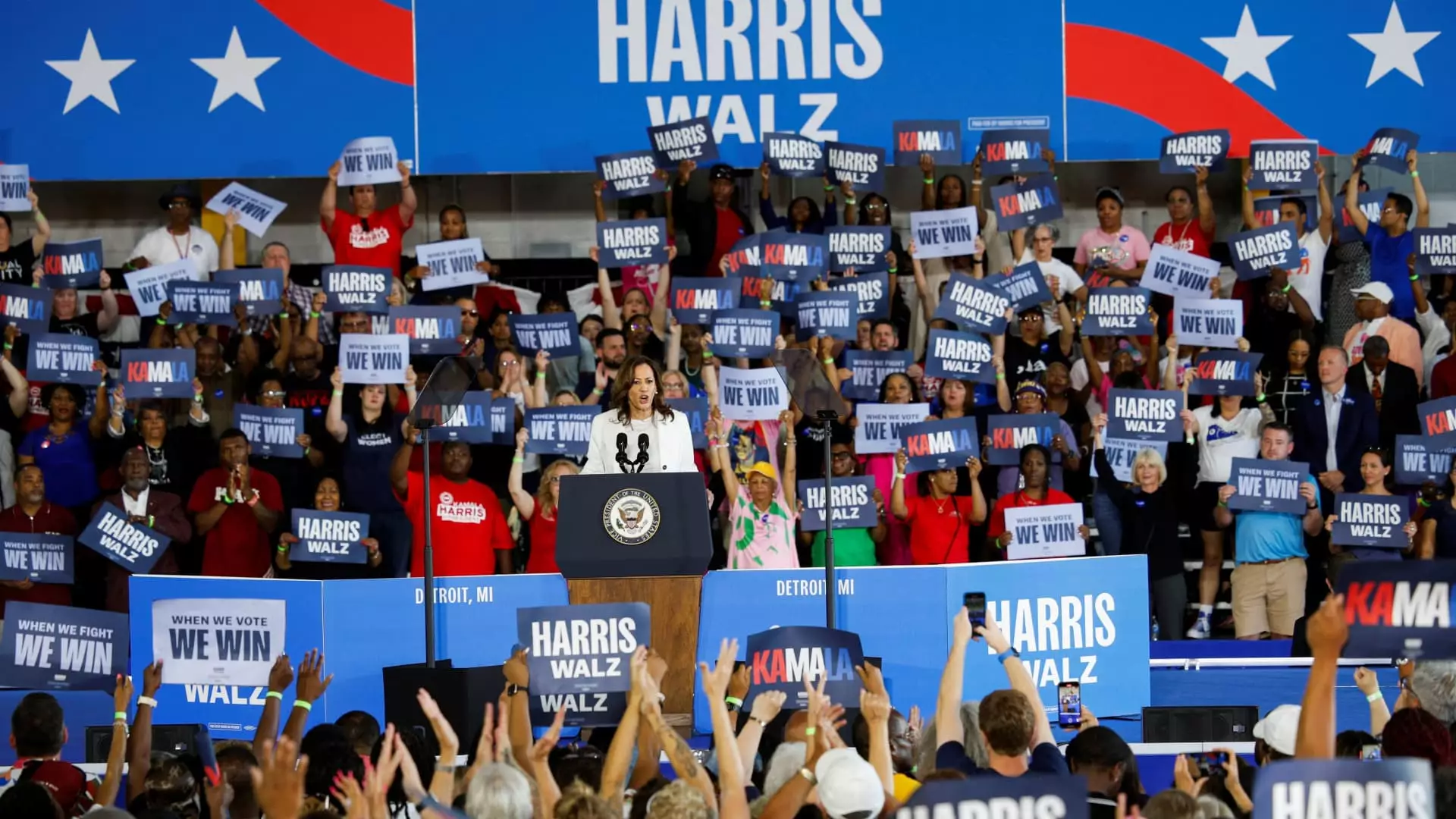Former President Donald Trump recently took to social media to falsely accuse Vice President Kamala Harris of using AI technology to fabricate images of crowd sizes at her rallies. This unfounded conspiracy theory was an attempt to explain the strong enthusiasm for the new Democratic ticket. Trump’s comments, echoed by some MAGA Republican commentators, not only perpetuated misinformation but also highlighted the ease with which advanced AI tools can be used to spread false narratives in today’s digital age.
The Harris campaign quickly refuted Trump’s claims, stating that the image in question was indeed a real photo of a 15,000-person crowd at a rally in Michigan. The campaign also pointed out the stark difference between Harris’ vigorous campaign schedule and Trump’s notably lighter one. Despite the evidence presented by the campaign, Trump continued to push the conspiracy theory on social media, further contributing to the spread of misinformation.
In addition to the false accusations of crowd manipulation, Trump also criticized Harris for supposedly copying his proposal to eliminate taxes on tips. This attack on Harris’s lack of originality reflects the ongoing political rivalry between the two parties. The tone of Trump’s social media posts suggests a level of frustration and desperation as he watches Harris gain momentum and support in the wake of President Biden’s endorsement.
The contrast between Harris’s energetic campaigning and Trump’s more subdued approach is evident in the recent events. While Harris has been holding rallies in battleground states and drawing large crowds, Trump has been relatively inactive on the campaign trail. This shift in dynamics underscores the changing landscape of the 2024 presidential race and the challenges faced by candidates in the digital age.
The use of advanced AI tools to spread misinformation has become a concerning trend in modern politics. The ease with which false narratives can be created and disseminated poses a threat to the integrity of the electoral process. Trump’s unsubstantiated claims against Harris are just one example of how misinformation can influence public opinion and create division among voters.
Overall, Trump’s accusations against Vice President Kamala Harris serve as a reminder of the importance of critical thinking and fact-checking in the digital age. As voters, it is crucial to question the sources of information we encounter and to seek out the truth behind the headlines. In a time when misinformation is rampant, it is up to each individual to discern reality from fiction and to hold politicians accountable for their words and actions.

Leave a Reply